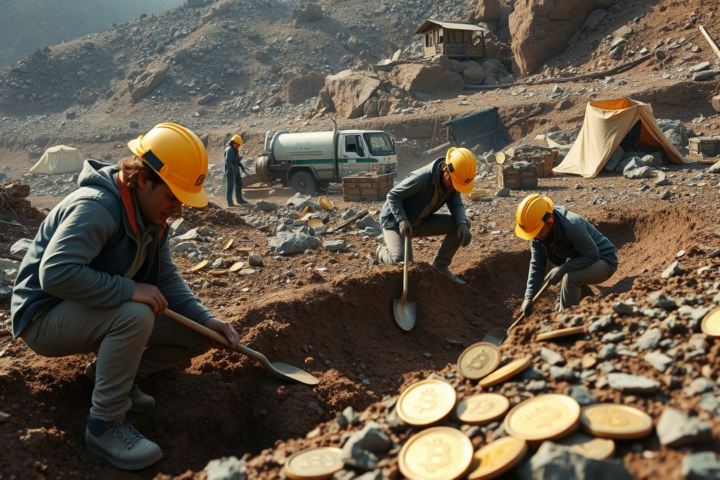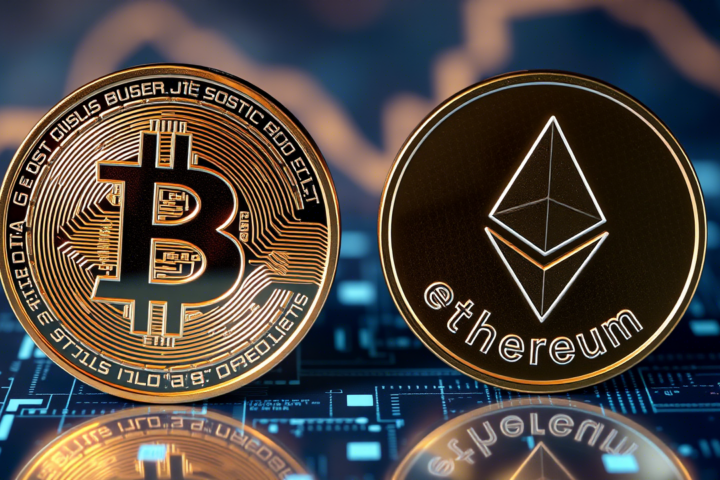A quiet but potentially transformative shift is occurring within the volatile world of cryptocurrency. Deutsche Telekom, the European telecommunications giant, is pioneering a sustainable approach, leveraging surplus renewable energy to reshape the narrative around the cryptocurrency’s environmental impact. This innovative approach, dubbed “digital monetary photosynthesis,” promises a greener future for Bitcoin mining.
Unlike many corporate forays into Bitcoin mining, Deutsche Telekom’s initiative, launched in June 2024, focuses on optimizing existing resources rather than adding to the energy demand. Deutsche Telekom MMS, the subsidiary at the helm of the project, is harnessing the inherent fluctuations in renewable energy generation to its advantage.
“With the growing number of renewable energy sources and the resulting fluctuations in available energy, the need for quickly available regulating power increases,” explained Oliver Nyderle, Head of Digital Trust & Web3 Infrastructure at Deutsche Telekom MMS. “Surplus energy is converted into digital values through the miners. We call this digital monetary photosynthesis.”
This innovative concept addresses a key challenge of renewable energy: its intermittency. Instead of letting surplus energy go to waste, Deutsche Telekom is channeling it into the computationally intensive process of Bitcoin mining. This approach tackles head-on the criticism often leveled against Bitcoin’s energy consumption, offering a sustainable solution and demonstrating the potential for a symbiotic relationship between renewable energy providers and the Bitcoin network.
The collaboration also underscores the growing recognition of blockchain technology’s potential beyond the financial sector. Partnering with Bankhaus Metzler and RIVA Engineering GmbH, Deutsche Telekom is exploring how Bitcoin mining can contribute to grid stability by acting as a flexible energy sink.
“Our goal is to gain experience in various application areas to further advance the innovative power of blockchain technology in Germany,” stated Hendrik König, Head of Digital Assets Office at Bankhaus Metzler. “Therefore, we are very pleased to be part of this pilot project with Telekom MMS. Blockchain technology is gaining increasing importance in operational business outside the financial industry – and a trusted financial partner is indispensable for managing crypto assets.”
This collaboration highlights the increasing maturation of the cryptocurrency ecosystem. It’s not simply about mining Bitcoin; it’s about exploring innovative applications of blockchain technology and integrating it into existing infrastructure. Deutsche Telekom’s initiative sets a precedent for other companies, particularly those in the energy sector, to explore similar ventures, potentially leading to a significant shift towards renewable energy sources powering the Bitcoin network.
The long-term success of “digital monetary photosynthesis” remains to be seen. However, the project represents a crucial step towards a more sustainable future for Bitcoin and the broader cryptocurrency market.
It demonstrates a commitment to responsible innovation, aligning with the growing global emphasis on environmental sustainability and paving the way for wider adoption of digital assets. By transforming surplus renewable energy into digital value, Deutsche Telekom is not just mining Bitcoin; it’s cultivating a greener future for the entire industry.
Read More
- DEX Takeover Inevitable? Crypto Exec Exposes Major CEX Listing Fees
- Upgrade Your DeFi Game: ShibaSwap 2.0 Makes Migration Seamless
- ShibaSwap 2.0 Unleashes A New Era of Seamless Trading With Multi-Hop Swaps
Yona has no crypto positions and does not hold any crypto assets. This article is provided for informational purposes only and should not be construed as financial advice. The Shib Daily is an official media and publication of the Shiba Inu cryptocurrency project. Readers are encouraged to conduct their own research and consult with a qualified financial adviser before making any investment decisions.










